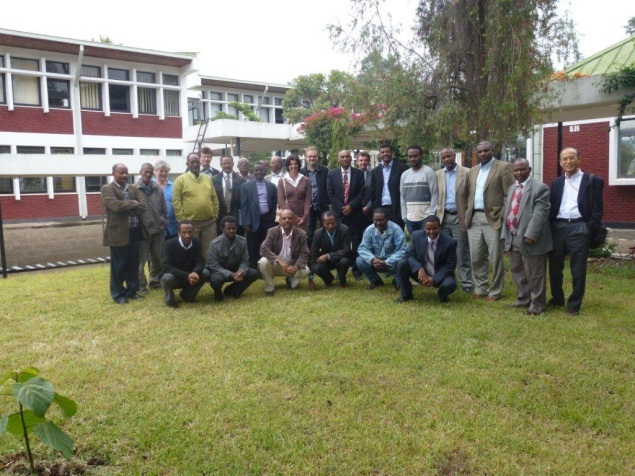2012: Reducing risks posed by pesticide use to human health and environment in Ethiopia.
As part of the technical assistance provided by FAO, the Pesticide Stock Management System (PSMS), already in use in the country for obsolete pesticide management purpose, is being upgraded to optimize the pesticide registration process. In order to address the issue of pesticide quality, FAO has also supported the training of national pesticide analysts at Walloon Agricultural Research Centre (CRA-W), Belgium on quality testing of technical and formulated pesticides. Existing laboratories have been upgraded with high performance chromatography instruments, which are currently used to develop protocols for pesticide residues analysis under a collaboration with the national JICA-funded project.
A field survey of pesticide use covering 179 farms has been carried out. The survey showed that tomatoes and onions are the mostly treated crops in the area under study, registering up to over 15 applications per season. Mostly herbicides are used on coffee farms.
National and international experts have analyzed the issue of container management in different production sectors: migratory pests, horticulture, floriculture, cotton, coffee and malaria prevention. Their findings and recommendations for a sustainable container management will be soon available at the PRRP website.
Proposed focus areas for the next future are the identification of Highly Hazardous Pesticides (HHPs) and development of mitigation strategies, promotion of Integrated Pest Management (IPM) and conducting field-based pesticide residue risk assessments to reduce reliance on pesticide use. This would in turn help to realize the production of safe food for local consumption and export trade.




